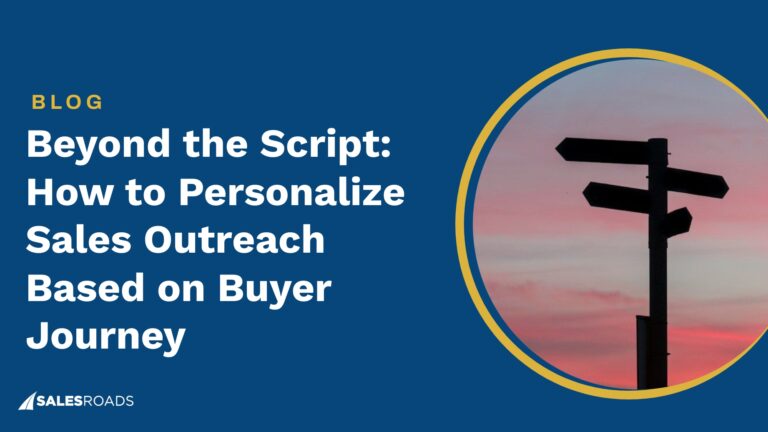A solid cover letter can be your getaway to a great job in sales. Building a narrative about yourself is a unique opportunity to grab recruitment managers’ attention and stand out from other candidates.
As sales development representatives often occupy entry-level positions, a lack of experience should not discourage you from pursuing job applications. Soft skills like communication, problem-solving, and teamwork are highly valued by companies and often compensate for specific knowledge that has not yet been acquired.
If you are ready to apply for your first or next role in sales, dedicate your efforts to writing a cover letter that will leave a lasting impression and qualify you for the best job interviews.
How to Write a Cover Letter for a Sales Development Position
SDR’s main role is to reach prospective customers, qualify them, and push them further in the sales funnel. When writing to apply for a sales development position, make sure to build your narrative in a way that emphasizes skills and knowledge relevant to this particular role.
Hiring managers recruiting for sales and business development look for candidates who can handle challenging situations and are interested in learning more about sales processes. You can use your letter’s introduction to emphasize your commitment to professional growth and ability to adapt to unpredictable scenarios.
Don’t worry if you don’t match all the requirements listed in the job description: sales managers often prioritize recruiting SDRs with strong listening skills and a coachable aptitude. Processes can be taught through team training while soft skills are more innate. .
Golden tip: Your sales representative cover letter should complement your CV, not repeat what is already there. While the CV brings objective data and information, the cover letter is a personal space that tells recruiters why they should invest time in evaluating you.
Structure of the Sales Representative Cover Letter
Here’s what each section of your cover letter should contain.
Introduction
Start from the beginning: say your name, the name of the company you’re applying to, and the role you’re interested in. Use these sentences to make a solid first impression and show the recruiter that you are not sending the same cover letter to multiple companies.
Although introducing yourself is crucial, a cover letter’s first paragraphs shouldn’t be only about you: they should also provide evidence that you’ve done research on the company you intend to work for. You can do this by mentioning some of their recent activities and explaining what you would do to add value to their business.
Demonstrating interest in the company shows that you are serious about your application and have the determination to exceed professionally.
Narrative
Your cover letter’s narrative should guide the recruiter through your most exceptional qualifications while giving proof of your writing ability. After a brief introduction, use the following paragraphs to highlight relevant accomplishments and convince the employer that you are a perfect fit for the role.
If you don’t have experience in sales or related fields, try to remember personal or professional challenges you’ve overcome through communication, teamwork, or creativity. You might find aspects in your background that relate to SDRs’ daily roles and responsibilities.
Focus your efforts on building a story that connects you and the role as much as possible. Include education, work experience, skills, and initiatives that can make the recruiter see you as a valuable candidate for the company.
Your narrative shouldn’t take more than two or three paragraphs: choose the most relevant aspects of your background and make them stand out.
Conclusion
Use the last paragraphs in your cover letter to summarize what value you can bring to the company and what makes you a perfect candidate for the role. You can add a sentence that expresses your excitement about this job and reinforces that you expect to hear from the company in the near future.
Remind them of your availability to schedule an interview and conclude the letter by thanking them for the opportunity to participate in the recruiting process.
SDR Cover Letter: Bonus Tips
Outline your paragraphs
Before starting, write down all the information you want to cover and take a few minutes to think about your letter’s structure. See if all topics are relevant and organize them, highlighting the most important ones.
Outlining your paragraphs will give you a clear idea of what you want to include and in what order, making the writing easier.
Tailor your letter to the company
If you are applying for multiple jobs, don’t forget to tailor your cover letter to match different requirements. Although the sections about education and experience might be essentially the same, you can rearrange the information to tone with the company’s demands.
Remember to include valid contact information
Double-checking your name, phone number, and other personal details is crucial before submitting a cover letter. You can create a heading to ensure all contact information is updated and easy to find.
Proofread
A great way to proofread your own letter is by printing it and taking notes with a pencil. Reading your work outside the screen brings a different perspective and makes it easier to find room for improvement.
You can also show your cover letter to a colleague and ask him/her to spot possible issues. An outsider’s view will often reveal unnoticed aspects of your writing.
Sales Development Representative’s Cover Letter Sample (No Experience)
Sally Palmer
(123) 456-7891
s.palmer@gmail.com
Oct 17, 2022
Dear hiring manager,
I am writing to express my interest in the position of sales development representative recently posted on LinkedIn. I’m aware of the importance of SDRs for organizations like Lead Value and believe that my skills and interest in sales make me a strong candidate for this position.
I’m a proactive, fast-learner team player who looks forward to having a role in business development. My practical experience with Brew Cafe as a summer intern has provided me with valuable knowledge of consumer behavior and has taught me to deal with challenging sales scenarios.
My interest in sales has always made me pursue opportunities in this field, and I believe my communication skills are perfect to increase outcomes for Lead Value. With commitment, curiosity, and willingness to learn, I am confident that I can be a great addition to your sales team.
Thank you for your time and consideration. I look forward to hearing from Lead Value.
Sincerely,
Sally Palmer










